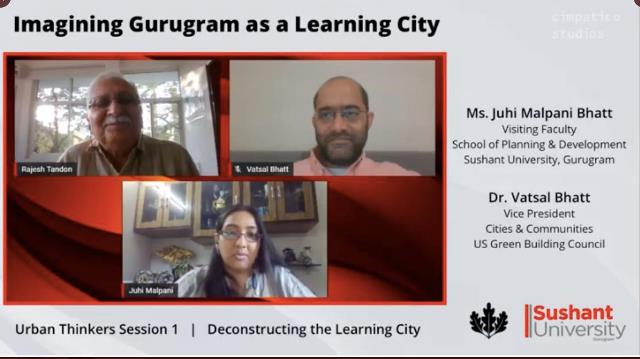Date/Time
Date(s) - 02/11/2020
4:00 pm
Categories No Categories

Dr. Tandon, our UNESCO Co-Chair, Chair in Community Based Research and Social Responsibility in Higher Education and Founder-President, PRIA, shared his insights on National Education Policy 2020 (NEP 2020), taking a futuristic approach on the same. He explored principles which the NEP 2020 conveys, in order to understand how we can make better use of policy suggestions for Higher Education Institutions (HEIs). Some critical issues that Dr. Tandon discussed ranged from making education learner-centric; seeing teachers as “drivers of change”, combining values of quality, equity and integrity and seeing education’s role as serving public good. The three missions of HEIs are learning not teaching, knowledge not research, empowerment not service. Learning, knowledge and empowerment should be integrated in a coherent manner to realise the essential roles of education systems.
“Engaged teaching” entails that learners are engaged in the teaching process through a variety of pedagogical means. Knowledge must be imparted through local dialects, local languages and must engage with local concepts. “Engaged research” means learning from society, learning from community, and learning from systems of knowledge. Knowledge from classrooms and knowledge from the real world have to be in harmony in order to foster innovation. In the world of “Google Guru” where domain knowledge can be acquired digitally, HEIs still remain relevant because digital technology cannot teach researchers applicational learning. HEIs assist students to re-examine theoretical concepts in a practical and local context, to enable them to find local solutions. HEIs facilitate students to deconstruct society and its relation with power and inequality. HEIs can enable students to use all their senses while studying theories; not just their mind but their sense of smell, listening, seeing and feeling. Finally, HEIs can play a major role in linking academic and industrial sectors. We need enhanced community-academia partnerships to produce actionable outcome, in order to tackle global challenges most effectively.




